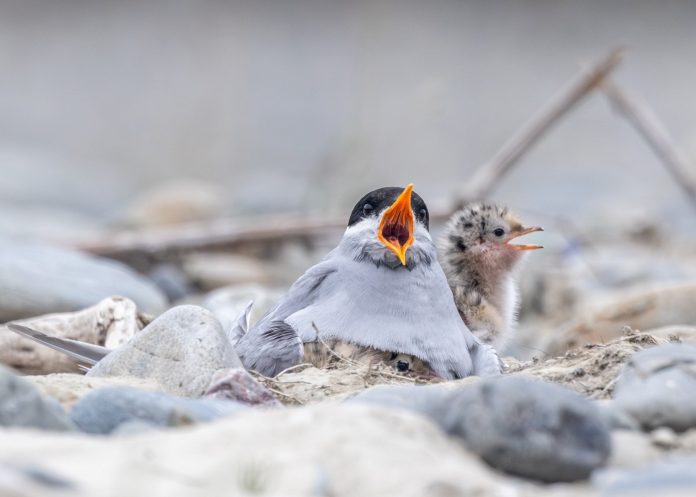
Nesting is under way for some of Canterbury’s special braided river birds.
The season has had a tough start with recent heavy rains and rising rivers, making it all the more important for people to play their part.
Each spring and summer from the start of September through to the end of February, thousands of braided river birds return to nest on the wide gravel beds of the Waimakariri, Rangitata, Rakaia, Ashburton and other Canterbury rivers.
While their nests are perfectly camouflaged among the stones, they are vulnerable.
Eggs and chicks can be lost in an instant, disturbed by vehicles, dogs, or even a curious passer-by. Predators such as stoats, cats, and southern black-backed gulls take a heavy toll. Weeds and changes to river flow make it harder still.
Ashburton Forest & Bird member Don Geddes said populations would have been affected by recent river levels.
Birds nesting on the Ashburton River alone include wrybill, black fronted terns, banded dotterels, black fronted dotterels, alongside colonies of black billed gulls.
Department of Conservation operations manager Leeann Ellis said the birds were uniquely adapted to the rare environments of braided rivers.
“Wrybills are the only bird in the world with a bill that is bent to one side, which they use to reach insect larvae under rounded riverbed stones. Like the black-fronted tern, wrybills only nest on South Island braided rivers so it’s vital we protect them here.’’
Mid Cantabrians are being asked to avoid driving on riverbeds during the nesting season and keep dogs on a leash.
Other actions included taking rubbish home, reporting pests and volunteering or donating to groups which supported the rivers.



